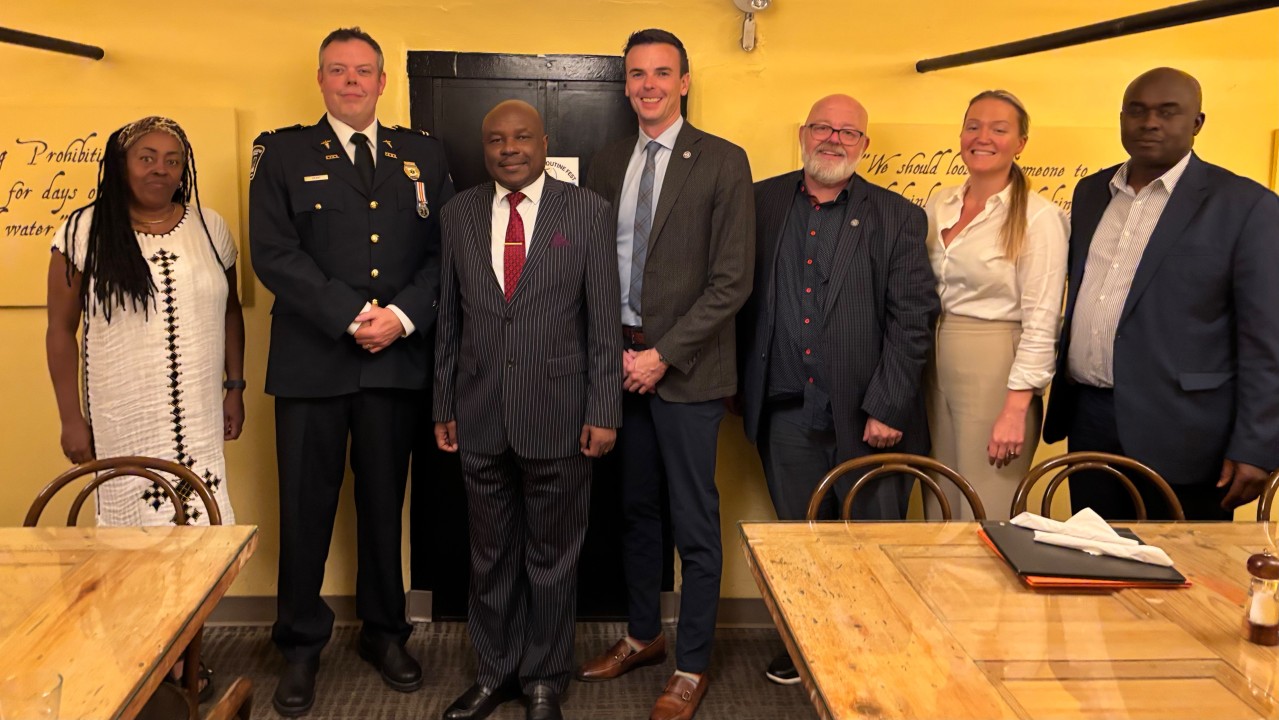

Kenya and Canada have initiated a landmark partnership aimed at addressing New Brunswick’s critical paramedic shortage while creating skilled job opportunities for young Kenyans.
Senior officials from the Ministry of Labour met with leaders from the Paramedic Association of New Brunswick (PANB) in Fredericton, Canada, to discuss a framework that will culminate in a Memorandum of Understanding between the two parties.
The discussions were led by Labour Principal Secretary Shadrack Mwadime, accompanied by Joel Mwanzia, Secretary for Labour Migration, and Wanjiru Kariuki, Secretary for Post-Training and Skills Development.
The Canadian side was represented by Chris Hood, Executive Director and Registrar of PANB, Eric Grant and Deputy President Jordan Baker.
According to PANB, which oversees the licensing, registration, and professional standards of paramedics in New Brunswick, the province currently has a workforce of about 40,000 paramedics but faces an annual attrition rate of 20 per cent.
This translates to a need for at least 8,000 recruits each year.
Over the next five years, demand is projected to surpass 40,000 paramedics as healthcare needs continue to rise.
The shortage has been attributed to an aging population and a rapidly aging healthcare workforce, both of which have strained emergency medical services across the province.
As a result, authorities are exploring global recruitment and training partnerships to ensure sustainable staffing in the sector.
To bridge this gap, PANB has proposed two recruitment and training pathways for Kenyan professionals.
The first, full paramedic training, will offer a 15-month intensive program aligned with Canadian competency standards.
Graduates will qualify for immediate employment as paramedics upon completion and will have opportunities to advance to higher-level certificate and diploma programs while working.
The second pathway focuses on upskilling existing healthcare workers in Kenya.
Under this model, healthcare professionals will undergo a competency assessment to identify gaps relative to Canadian paramedic standards.
They will then receive targeted training to address those gaps and prepare for employment in Canada’s paramedic services.
In addition to recruitment, PANB pledged to support the development of Kenya’s paramedic training capacity.
The association plans to train Kenyan instructors and equip local training institutions to deliver programs that meet Canadian competency and accreditation standards.
PS Mwadime said the collaboration is part of Kenya’s broader strategy to leverage skills development and international partnerships to create decent job opportunities abroad while building local institutional capacity.
“This initiative not only opens global employment opportunities for our youth but also strengthens Kenya’s position as a trusted partner in providing skilled healthcare professionals to the world,” Mwadime said.
The proposed partnership is seen as a model for mutually beneficial international labour mobility, one that addresses labour shortages in developed economies while empowering developing nations through structured training and skills transfer.
If successful, the Kenya-New Brunswick collaboration could pave the way for similar partnerships between Kenya and other Canadian provinces, enhancing the country’s role as a global hub for skilled medical professionals.













